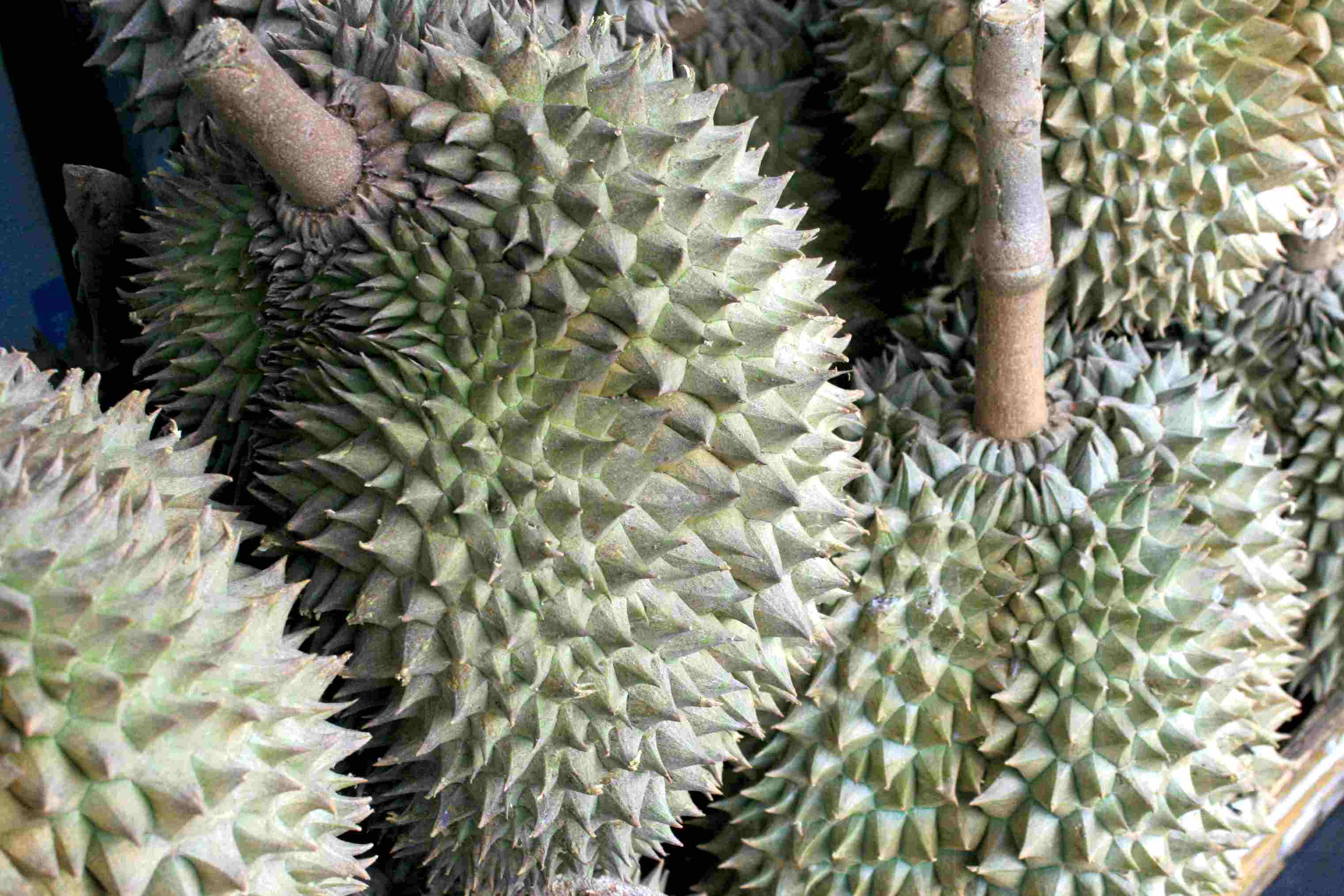
Widely known and revered in southeast Asia as "the king of fruits," durian is distinctive for its large size, unique odor, and formidable thorn-covered husk. Its shape ranges from oblong to round, the colour of its husk green to brown, and its flesh pale yellow to red, depending on the species. Durian, native to Brunei, Indonesia, and Malaysia, has been known to the Western world for about 600 years. The 19th-century British naturalist Alfred Russel Wallace famously described its flesh as "a rich custard highly flavoured with almonds".
Durian is a prickly, tropical fruit known for its pungent and distinctive odor. The fruit is widely available in Southeast Asia, particularly in Malaysia, Indonesia, and Thailand. It is no exaggeration to say that Durian is a divisive fruit- people either love it or hate it due to its strong and overpowering smell.
The Durian tree is an evergreen tree that can grow up to 50 meters in height, and it requires humid and warm weather to grow. Durian is a large fruit that can weigh between 1 to 3 kilograms, and it has a hard and spiky skin. The flesh is soft and creamy yellow, with a texture that can be similar to custard or ice cream. The fruit has a unique flavor that can be described as sweet, creamy, and slightly nutty.
One of the most interesting things about Durian is its potent smell. Some people describe it as a pungent aroma that is similar to rotten eggs or sewage. Its odor is so strong that Durian can be banned in some public places or hotels, and some people even need to hold their nose when they approach the fruit.
Despite its pungent smell, the fruit is a delicacy in Southeast Asia, and it is enjoyed in many different ways. Durian can be eaten fresh, as a dessert, or even baked in cakes. In many places, it is also used in traditional medicine to treat ailments such as stomach problems, fevers, or even depression.
Eating Durian is considered to be an experience, and it is often viewed as a social activity that brings people together. In some cultures, it is common for people to gather around a table to eat Durian while drinking tea and chatting. It's also a popular snack for long-distance drivers to keep them alert and to fight off hunger.
Durian has gained worldwide recognition over the past few years, making it a popular fruit in many countries. In many places, it is considered exotic and is often associated with Southeast Asian cuisine. In particular, its unique flavor has become a favourite among adventurous foodies and chefs, who often experiment with it in many different dishes.
However, despite its popularity, Durian remains a controversial fruit, mainly due to its strong and overpowering smell. Some people are so put off by its aroma that they refuse to try it, while others appreciate it as part of the fruit's uniqueness. In many ways, Durian is a love-it-or-hate-it kind of fruit, and most people have strong opinions about it.
Durian is a fascinating fruit that has divided opinions for centuries. Whether you love its pungent aroma or hate it, there's no denying that Durian is a unique and distinctive fruit that has been enjoyed in Southeast Asia for generations. Its popularity is growing worldwide, and as more people discover its unique flavor, it is sure to become even more popular in the years to come.